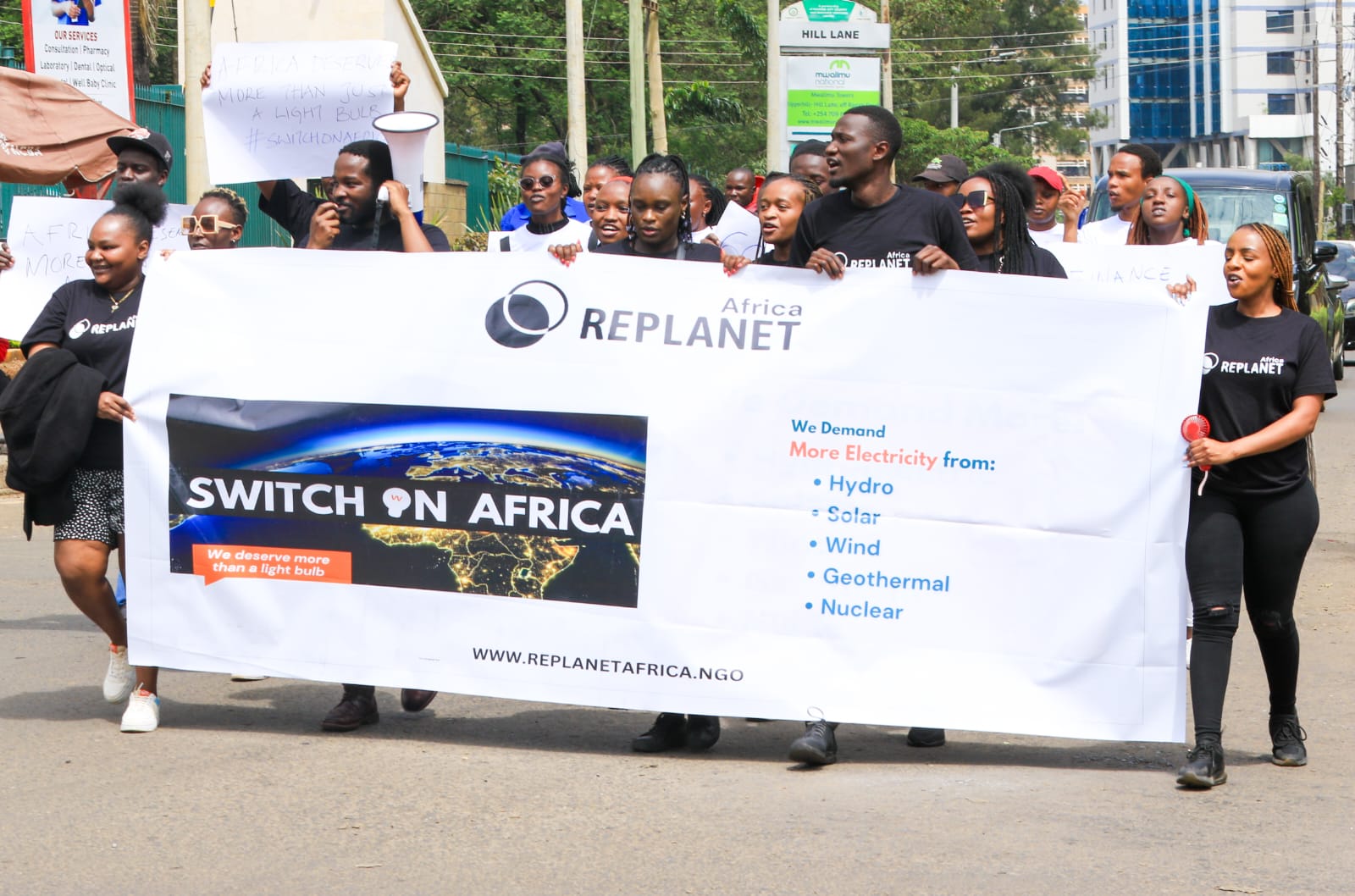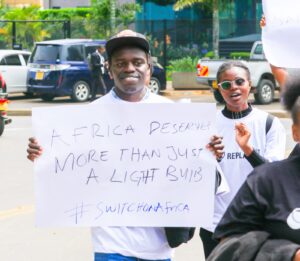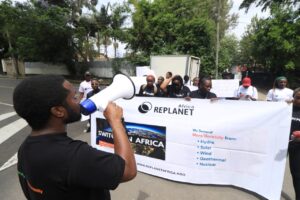
[NAIROBI, December 5, 2023] – WePlanet Africa, a grassroots environmental movement, led a procession of volunteers to the World Bank offices in Nairobi where they delivered a letter urging the multinational institution to rethink it’s scale and pace of investment in clean energy access in Africa.
The call is part of a series of activities under the “Switch on Africa” campaign – designed to catalyze investment in clean energy, cut the cost of power, protect African women from indoor air pollution and reduce deforestation by availing energy from clean sources.
In a letter delivered to their Upper Hill office address in Nairobi on the 6th day of COP28, WePlanet Africa asked the multinational lender to prioritize investments in renewable energy and work with African governments to develop policies that make power affordable and accessible to all.
In the letter, WePlanet Africa notes that while the World Bank has been a major player in financing energy projects in Africa, their approach to energy access on the continent has focused primarily on expanding the grid infrastructure with little regard to affordability. According to the letter, this has had the effect of serving the basic function of lighting.

“Beyond the grid, the World Bank should adopt a broader definition of energy access in Africa to something more than just a light bulb, Patricia Nanteza, WePlanet Africa Director, said in a statement read on her behalf by Peter Gichuki, the WePlanet Africa Program Officer.
“Meaningful energy access must include reliable, sustainable and affordable sources of power that meet the diverse needs of households including cooking,” she said, adding that the World Bank should help African countries widen their energy mix by investing in a range of clean energy sources, such as nuclear, solar, wind, geothermal as well as hydro.
Delivering a piece of charcoal to the World Bank pavillion at the COP28 in Dubai, Ms Nanteza reiterated the Nairobi call and called for massive investment in renewable energy sources on the continent.
Ms Nanteza urged the World Bank to consider energy subsidies and urge African governments to exempt LPG from taxes to help protect the poor and vulnerable in Africa as part of the efforts to reduce the heavy dependence on biomass fuels for household cooking.
“It’s instructive that even households on the grid continue to limit electricity use to lighting and switch to biomass and fossil fuels for cooking due to high cost of electricity,” she said.
In the letter, WePlanet Africa also took issue with World Bank’s apparent reluctance to fund nuclear energy especially in the Global South. “The World Bank’s freeze on funding of nuclear reactors especially in Africa portends badly for a continent that desperately requires baseload power supply to grow its industry and create jobs for millions of unemployed youths,” the letter reads in part.
The letter said World Bank’s demand for a strong track record of nuclear safety as a pre-condition for funding nuclear projects in African countries has the inadvertent negative impact of feeding the perception that nuclear is dangerous and portrays the multinational lender as a spectator.
“Instead of playing spectator, we implore the World Bank to take leadership and through partners, help African nations to establish robust regulatory frameworks prioritizing safety and environmental protection,” Ms Nanteza said.
In Africa, 80% of the population still lacks reliable access to energy. According to the African Development Bank, “up to 640 million Africans and 4 in 5 people in the Sub Saharan Africa have no access to energy.

The same report notes that the current energy mix on the continent is dominated by fossil fuels and traditional biomass including charcoal and wood fuel, which are major sources of greenhouse gas emissions and air pollution.
Despite a decade of growth, the power generation gap between Africa and other regions is widening. In 2022, the continent’s total installed electricity capacity was 245 GW with 1.4 billion people. At 333 million people by the end of 2022, US had 1,160,169 MW—or about 1.16 billion kW.
Kenya has 3 gigawatts of installed capacity for 53 million people, Nigeria has 12 gigawatts for 213 million people while the UK has 75 GW for a population of 67 million.
Uganda has one of the lowest per capita electricity consumption in the world with 215 kWh per capita per year against the Sub-Saharan Africa’s average 552 kWh per capita and the world average of 2,975 per capita.
This limited capacity results in frequent blackouts and limited grid access, especially in rural areas.
